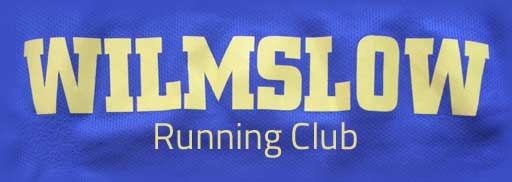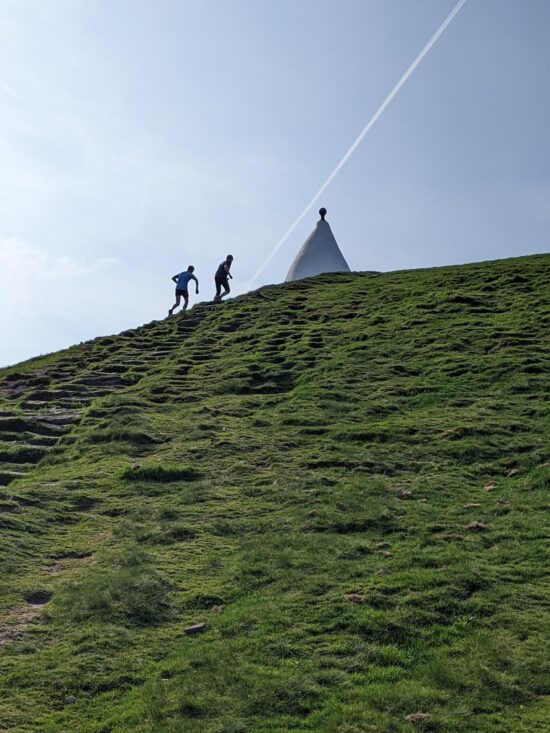A few of our tough runners took on the Bollington challenge on Sunday. It was the Inaugural event.
Excellent results. All runners in top 3 category Positions. Even though Damian got lost!
Wilmslow Runners results below.
| Pos | Time | Runner | Club | Cat | Cat Pos |
|---|---|---|---|---|---|
| 1 | 01:33:32 | ANDREW GRANT | HARROGATE H | MV50 | 1 |
| 2 | 01:38:50 | BARRY ARCHBOLD | WRC | MV45 | 1 |
| 3 | 01:42:49 | ROB DOWNS | WRC | MV55 | 1 |
| 5 | 01:49:25 | NICOLA REECE | WRC | FSEN | 1 |
| 11 | 01:53:00 | DAMIAN NICHOLLS | WRC | MV40 | 3 |
| 114 | 02:52:16 | JULIE LUCAS | WRC | FV55 | 2 |
| 121 | Finishers |
Just wondered why it was called Happy Valley..
There is no certainty about how Bollington got its name but there are a few theories!
The obvious idea is that it is based on the name of the river Bollin. But the Bollin doesn’t run through Bollington – it is Macclesfield’s river. Our river is the Dean. The Bollin and the Dean come together as similar sized rivers at Wilmslow and continue to the Mersey estuary as the river Bollin. In fact it may well give its name to Little Bollington, a delightful hamlet near Dunham Massey, through which it flows.
It is possible that folk didn’t realise that it was the Macclesfield branch that retained the name Bollin – this in times when folk didn’t travel much and were unsure of the topography. An extension to this idea is that it is possible that both branches had the same name at one time.
The next idea is that there was a chap called Bolla who set up home here, ing means ‘belonging to’, ton meaning village, community or town. Corrupt Bolla a little and you get Boll-ing-ton. Ing and ton are very common in English place names and are almost always associated with a person’s name. My money is on this explanation.
The obscure!
Wikipedia has some interesting if rather obscure possibilities which include the Middle English word Bolling, meaning ‘excessive drinking’, + ton, town or village. Well, I suppose it’s just possible! However, the area had the name long before there was a village or any pubs!
So why the river Dean?
It is possible, maybe probable, that the name comes from the fact that dean is a variation of dene, one meaning of which is ‘a narrow wooded valley’ (COD) which is, of course, exactly where it flows in Ingersley Vale and, in earlier times, through the middle of Bollington. Perhaps it should really be the river Dene.
Origin of the ‘Happy Valley’ nickname
As is often the way with such things there is more than one explanation available.
The original explanation comes from Samuel Greg who acquired Lowerhouse Mill in 1832. He was a forward thinking philanthropic man who actually valued his workers as people rather than just labour for his mill and he developed the Lowerhouse area with a view to improving their living conditions by providing schooling, a library, and allotments to grow their own food. Greg called Lowerhouse Goldenthal, German for Happy Valley. Today we use the name for the whole of Bollington. This is the true origin of the name, but others had mischievous explanations …
Mad as …
The second explanation is related to the history of the town. The three Bollington villages were once a very rural Cheshire agricultural community with a small population. Then the mills came, along with the Macclesfield Canal and, later still, the railway. These created a demand for labour which could only be provided by bringing in outsiders. Some of the Irish employed to build the canal settled here. Many experienced cotton industry workers were enticed from Lancashire mill towns, particularly Bury, as were others, particularly quarry workers, from Derbyshire.
The three different peoples didn’t mix particularly well and families tended to develop from within a limited group of people from the same origins. Unfortunately, this led to inbreeding and, in serious cases, this led in turn to mental problems – hence, rather cruelly, the ‘happy’ part of the name. The fact that they all lived in the valley completed the phrase.
It is said that Bollington provided, in Victorian times, the major contribution to those poor souls living in Macclesfield’s West Park mental hospital or, as it was known then, the lunatic asylum.
… a hatter
And that brings me to the third possibility, still on the theme of lunacy. Higher Mills (Dyers Close today) was once Messrs Neaves hat factory and I understand that mercury was used in the process. It is also said that a later user of the mill, Radion’s Ltd., used mercury in their electronic valve making and repair business. Shrigley Dyers, who were using the mill from the 1950s, found plenty of mercury in the gaps between the floor boards. Nowadays we all know how dangerous mercury can be, seriously damaging the nervous system.




